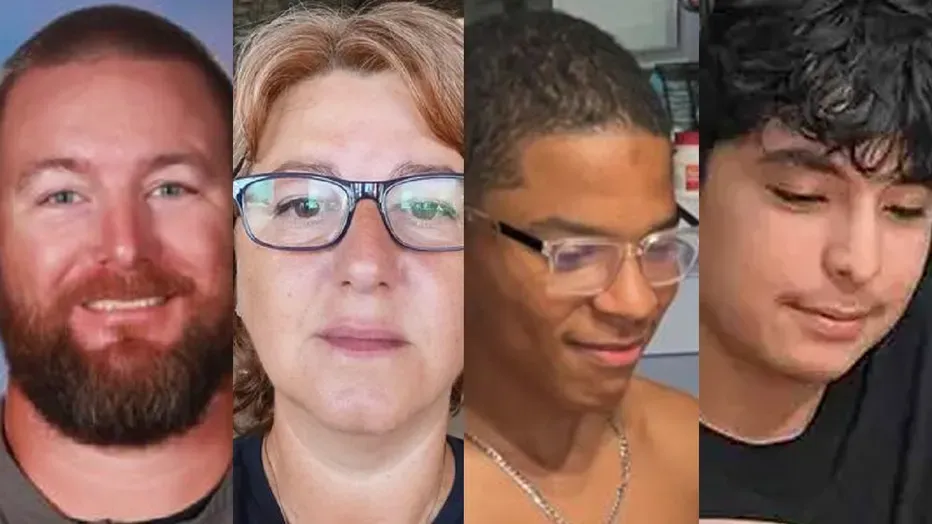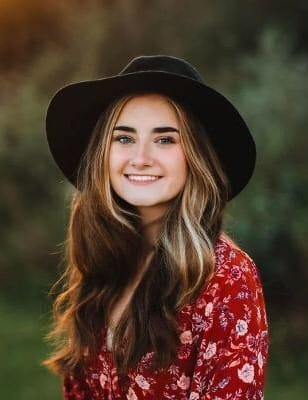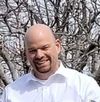Is there such a thing as a "safe space"?

Certainly, you feel safe in this room, don’t you?
No – I, most certainly, do not.
This was the conversation I had with my therapist a couple of months ago. I forget the context of the exact conversation. I may have been telling her how I was anxious and nervous in that moment. Maybe I was telling her how I didn’t feel safe anywhere – not in grocery stores, movie cinemas, music concerts, churchs, or shopping malls. Basically, anywhere there were people, I was anxious.
She tried reassuring me that, within the confines of her tiny office, that I was in a safe place. It was a safe place, she said, in that I could trust that whatever is said within those walls stays there.
Whatever happens in Vegas, stays in Vegas.
Whatever I say in Suzy’s office, stays in Suzy’s office.
Well, not really, I countered. Everything I said to my psychiatric nurse practitioner (“Dr. Mike") was presented at my hearing to the Social Security Administrative Law Judge (ALJ). After the hearing, upon my request, my lawyer sent me all the exhibits presented in the case. I was shocked. There they were – all of Dr. Mike’s notes from every visit over the last three years. Every notable thing I said during every visit was right there, verbatim.
Suzy said he was wrong to do that. No shit. It was very unprofessional, she said. For her part, she submitted a synopsis of her progress notes to the court. She took the time to sit down and write something as opposed to taking the lazy way out and just handing over all her visitation notes.
I told her I saw her report in my file and I appreciated it, but that didn’t change the fact that this other therapist betrayed my trust. I no longer felt safe telling him stuff. As collateral damage, I now felt cautious telling any therapist, including her, everything that was on my mind or everything I had done.
I could tell Suzy was offended, but I was just being honest. This is a safe place, right?
She insisted I could trust her. I nodded just to try to move on, but I was holding back that I knew she had stabbed me in the back, as well. I had told her I had seen all the evidence in my file, so I knew she knew that I knew.
In addition to her synopsis of my diagnosis, she also filled out a few questionnaires prepared by Social Security about my ability to work. It was the typical “on a scale of 1 to 5” type of questions
Do you think he can hold a fulltime job?
Do you think he can follow simple instructions?
Does he have problems concentrating or focusing on tasks?
Can he abide by authority?
Her answers to this assessment were not as favorable to me as I would have expected from her. More importantly, her answers were not consistent, at all, with what she was telling me during our sessions. She would often tell me – and still does – that she doesn't think I realize how serious my condition is.
Dr. Mike’s answers, on the same assessment, were far more supportive and adamant that I could not hold down any kind of job at this time. I remember telling my lawyer before the hearing – and before I saw the evidence – that I was certain that Suzy would be a strong advocate for me, but that Dr. Mike was harder to read. I was surprised when my lawyer told me that, actually, Dr. Mike's assessment was far more favorable to us.
But, anyway, back to this particular session with Suzy. I nodded when she kept insisting I could trust her. She defended herself for another ten minutes before moving on.
OK. Besides this being a place you should feel safe to say anything, this is also a safe place in that no one will harm you here. You have to agree with that, right?
Actually, no I don’t.
I could tell she was getting frustrated. I was on the debate team in high school and college and I, rarely, concede any statement as a sure thing. I don't believe in absolutes.
How can you not feel safe here? It is just you and me. You think I am going to, physically, attack you?
No, I am not afraid of that, but you can’t guarantee me that some random deranged person won’t walk down this hallway, past this window, and start shooting up the place. This is a big office building with lots of people.
I could tell she wanted to throw her arms up in frustration. I don’t care if the chance was .000001%, there was still a chance. I’ll tell you one thing, you won’t catch me going to a Taylor Swift concert.
Yesterday’s school shooting at Apalachee High School in Georgia got me thinking about this conversation I had with Suzy a few months back. Sadly, it reaffirms my position on several fronts.
But, first, I want to pay respect to the victims:
Richard Aspinwall
Christina Irimie
Christian Angulo
Mason Schermerhorn

Don’t just gloss over the names. Please, read their names out loud. Vocalize their names. These are real human beings, like you and I. Let's pay respect to them before they, in society's eyes, become just another number in a statistic about school shootings.
These people just had their lives ended – without warning and without a chance of saying goodbye to their loved ones. They woke up yesterday morning not knowing that they only had hours left to live.
And why? Were they going to be doing something dangerous that day? Were they going to go mountain climbing? Were they going to go hiking deep into the woods? Were they going to go swimming in shark-infested waters?
No, they were going to school.
It saddens me that we have grown numb to this. I remember, like it was yesterday, watching CNN and marveling at the surreal sight of teenagers filing out of Columbine High School. They all had their arms raised with their hands on their heads. Nobody knew for sure if the shooter or shooters was among this group trying to sneak out.
Shooters? In a school?
It just didn't register in my brain. The concept had never entered my mind as a possibility.
That was 1999. Here we are 25 years later in 2024. Nothing has changed. In fact, it has gotten worse – much worse. The Washington Post, to their credit, is trying to keep the issue in the spotlight by keeping a running total on school shootings.
They report that there have been 416 school shootings since 1999. That equates to almost 17 shootings per year. That is over one per month.
My longtime partner, Erin, is a second grade teacher. I shouldn’t have the anxiety every morning, when I kiss her goodbye, that this might be the last time I ever see her. But I do worry. What if her school is that one school in America this month? It can happen anywhere. Who knew of any of these towns before these shootings?
As if I don't have enough anxieties. As I watch her drive away every morning, it shouldn't feel like I am watching her depart for a tour of duty in Afghanistan.
Yet, my last words to her every morning before I say “I love you,” are “keep your eyes and ears open, stay alert, be vigilante.”
My first words to her when she gets home are, “Yay! My baby is home safe!” I say it in a playful manner as I clap my hands and keep repeating, “Baby home safe! Baby home safe!” But it truly is a relief. How sad is that?
That same Washington Post article says that 382,000 students have experienced gun violence at school since Columbine. The city of Orlando's population is just over 300,000. Think about that for a second. The home of Disney World could be filled with an entire population of young adults that have been scarred for life due to gun violence in their schools.
Despite living in the little state of Rhode Island, I have been directly affected by gun violence in school. My cousin’s step-granddaughter, Madisyn Baldwin, was a student at Oxford High School in Michigan when a shooter ended her life in 2021 at the age of 17.

I remember waking up to news of the Oxford school shooting – another one of these small towns nobody outside of Michigan has ever heard of.
I admit to having become numb to this kind of news. I, probably, thought to myself, "Only four victims. That is not so bad."
The shooting happened in Michigan. I live in Rhode Island. No way I would have any connection to it, right? Wrong.
I went on Facebook and saw everyone giving their condolences to one of my favorite cousins. I kept seeing pictures of a beautiful girl on her timeline. That is how I found out my cousin lost her step-granddaughter (her late husband's granddaughter from a previous marriage) in the shooting. I had only met Madisyn a couple of times when she was much younger. But I couldn't help feel horrible for my cousin. She had lost her wonderful husband, one of the funniest guys I'll ever know, to ALS a few years earlier, and now this. May the two be reunited in heaven.
How many more kids do we have to lose? Inevitably, we will see posts stating “thoughts and prayers.” Thoughts and prayers don’t get things done. Actions do.
Which leads me to another aspect of my depression. There are so many layers it is not even funny. Society, even when presented with a problem stuffed in their face, disregards issues because of money and/or politics.
To summarize this part of my depression – society is stupid and getting stupider.
I am not a hunter or a gun owner. I hate guns. I have only seen one – outside of stores – once in real life. I know nothing about guns. Correction – I know one thing about guns. That one thing is I know is that an AR-15 rifle is used in many of these mass shootings.
Here’s an idea – can we ban them?
I don't want to hear about the 2nd Amendment. That was written at a time when the arms we could bear were muskets. You'd have to go through a ten second ritual everytime to reload the thing. There weren't automatic weapons back then capable of firing of 100 rounds in a 30 seconds.

I am not a fan of hunting, but I don't impose my beliefs on anyone unless their beliefs endanger me or my loved ones. I love deer. They are my favorite animal. I get excited when I see one. Sometimes, when I am really depressed, I hang out in areas where there is a high likelihood of seeing deer. They are one of the few things I find therapeutic. If you want to kill a deer for sport, I hate you, but I won't stop you from doing it.
You killing a deer does not affect me, directly. I have two points, though, when it comes to the hunting argument.
First, you don't need an automatic rifle to hunt. Maybe I am wrong, but I have never seen a hunter spraying the forest with a machine gun trying to kill an animal. The poor defenseless animals are already at enough of a disadvantage.
Secondly, if said weapon, used for hunting, is used to kill a family member of mine, (i.e. Madisyn) then we have a problem. We have a big problem.
If said weapon is used in several mass shootings, including schools, instead of its intended purpose, we have a problem. If my life partner, and my sole reason for living, is a teacher and her life is put in jeopardy, even .000001%, then we have issues.
I don’t mean to get political. Everyone is entitled to their beliefs. Just don't let your beliefs cross the line into affecting my safety.
The last thing I will say about the gun issue is that the NRA is a powerful lobby. They have a lot of money. They donate to a lot of politicians. It sickens me that politicians don't have the courage to stand up and do – what is so clearly – the right thing. And why not? Because they don't want to lose the backing ($$$) of certain powerful lobbies. So instead, kids die.
John F. Kennedy wrote an entire book about politicians in American history who sacrificed their political careers to do the right thing. He titled his book, Profiles in Courage. It shouldn't be considered "courage," however, to stand up to evil. It should just be the thing to do. But there are other, far less important, factors that sway politicians.
The JFK Library, which has been giving out an annual Profile in Courage Award since 1989 to deserving politicians, talks about how JFK defined "political courage":
In the preface to Profiles in Courage, Senator Kennedy discusses the “problems of political courage in the face of constituent pressures, and the light shed on those problems by the lives of past statesmen.’’ He describes the three types of pressure faced by senators as:
-- pressure to be liked
-- pressure to be re-elected, and
-- pressure of the constituency and interest groups.
Edward Kennedy eulogized his brother, Robert, by saying these beautiful words:
My brother need not be idealized, or enlarged in death beyond what he was in life, to be remembered simply as a good and decent man, who saw wrong and tried to right it, saw suffering and tried to heal it, saw war and tried to stop it.
Those of us who loved him and who take him to his rest today, pray that what he was to us and what he wished for others will some day come to pass for all the world.
As he said many times, in many parts of this nation, to those he touched and who sought to touch him:
"Some men see things as they are and say why.
I dream things that never were and say why not."
Right now, I am looking at mass shootings, and school shootings, specifically, and asking myself why. I am looking at banning automatic weapons in everyday society and asking myself why not.
There is a lot of wrong out there, let's try to right it. There is a lot of suffering, let's try to heal it. It's real simple – just do the right thing to protect ourselves and the people we love.


